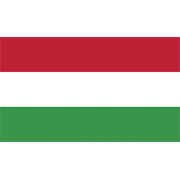Fiscal subject related
Foreign customers are eligible for duty-free shopping or a VAT refund under the following conditions:
- they must have permanent residency outside the EU
- the value of the purchase must be at least 175 EUR
- they must leave the EU within 90 days after the purchase
- when leaving the EU, you must verify your purchase at the border/at a customs office
Foreign customers can opt for duty-free shopping or a VAT refund only if they do not have permanent residency in the EU. However, this also means that these customers can apply even as EU citizens if they do not actually live in the EU. When making the purchase, such customers will be required to verify this information to the seller (cashier) at the shop, normally by showing them the passport and an address data /address card.
As for the exact refund currency and media, VAT is refunded in HUF and in cash by default, but it can be agreed on different terms with the seller. For example, customers can also receive a refund in EUR and to their bank account.
Other news from Hungary
Hungarian NAV Clarifies: Stricter Controls for Invoices and Data Reporting
 Hungary
Author: Tara Nedeljković
Hungary
Author: Tara Nedeljković
Hungary’s tax authority (NAV) will enforce stricter invoice data reporting rules from September 15, 2025, rejecting submissions with certain data errors instead of issuing warnings and imposing penalties up to one million forints for non-compliance. Read more
Subscribe to get access to the latest news, documents, webinars and educations.
Already subscriber? Login


Using the Customer App in Hungary with E-Cash Registers: Key Questions Answered
 Hungary
Author: Tara Nedeljković
Hungary
Author: Tara Nedeljković
Hungary’s customer app enables consumers to download, store, and manage e-receipts from e-cash registers, though its use is entirely optional. The app does not require registration or personal data, using anonymous search keys to retrieve receipts, and supports features like QR/NFC sharing for loyalty programs or invoice requests. Read more
Subscribe to get access to the latest news, documents, webinars and educations.
Already subscriber? Login


E-invoicing requirements in Hungary: Overview and main requirements
 Hungary
Author: Tara Nedeljković
Hungary
Author: Tara Nedeljković
Hungary’s e-invoicing framework combines a B2G receiving mandate, real-time VAT reporting, and a new sector-specific B2B requirement. Since 2019, public authorities must accept invoices compliant with EN 16931, while all taxpayers must report invoice data in real time through the NAV Online Invoicing System. Read more
Subscribe to get access to the latest news, documents, webinars and educations.
Already subscriber? Login


E-cash registers and online cash registers in Hungary: questions and answers
 Hungary
Author: Tara Nedeljković
Hungary
Author: Tara Nedeljković
In Hungary, businesses can choose between online, hardware-based, and cloud-based e-cash registers, but their use depends on the activity and sales channel. Online or hardware-based e-cash registers are required for activities where cash register use is mandatory, including mobile shops and service points, while cloud-based systems are only allowed for non-mandatory activities. Read more
Subscribe to get access to the latest news, documents, webinars and educations.
Already subscriber? Login


E-Cash Registers, Receipt Storage, and Data Correction in Hungary
 Hungary
Author: Tara Nedeljković
Hungary
Author: Tara Nedeljković
Hungary now allows taxpayers in specific sectors—such as certain retail trades, catering, accommodation, and pharmacies—to opt for electronic cash registers (e-cash registers) instead of traditional fiscal devices. E-receipts and e-invoices from these systems will only be valid for tax purposes if they comply with strict identification, content, and data transfer rules under Decree 8/2025, with new retention provisions allowing secure AEE storage until 2033 in lieu of separate receipt archiving. Read more
Subscribe to get access to the latest news, documents, webinars and educations.
Already subscriber? Login


Hungary’s e-Cash Registers: New Cybersecurity and Technical Updates
 Hungary
Author: Tara Nedeljković
Hungary
Author: Tara Nedeljković
Hungary’s Ministry for National Economy has proposed a draft amendment to Decree No. 8/2025, introducing stricter cybersecurity requirements for both cloud-based and hardware-based electronic cash registers (e-cash registers) in line with the Cybersecurity Act effective from January 2025. Cloud-based systems must undergo cybersecurity audits by registered auditors, while hardware-based devices require certification from the tax control unit manufacturer, ensuring compliance with national cybersecurity standards. Read more
Subscribe to get access to the latest news, documents, webinars and educations.
Already subscriber? Login


Hungary: NAV Launches eNyugta App for Digital Receipts
 Hungary
Author: Tara Nedeljković
Hungary
Author: Tara Nedeljković
Hungary’s Tax Authority (NAV) has launched the eNyugta mobile app to provide consumers with secure, paperless access to their purchase receipts and tools for tracking personal spending. Available in Hungarian and English for Android and iOS, the app features digital receipt storage, spending analysis, and accessibility options, with mandatory updates to ensure ongoing security and performance. Hun... Read more


